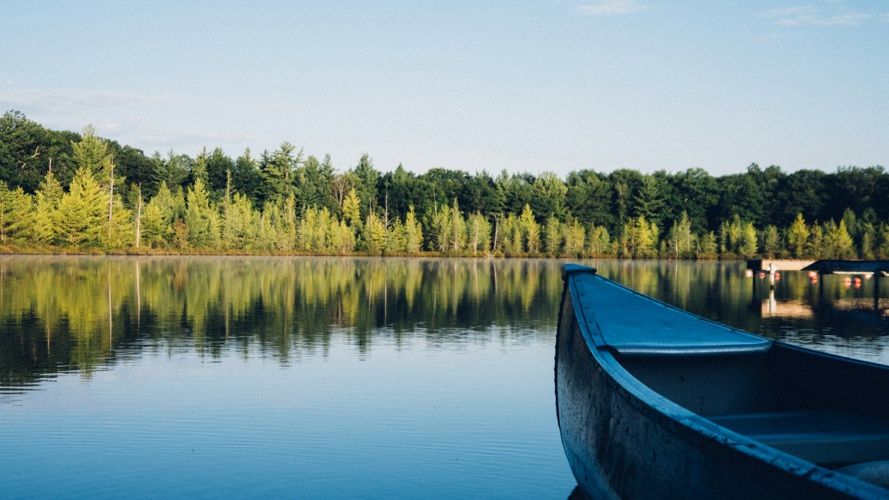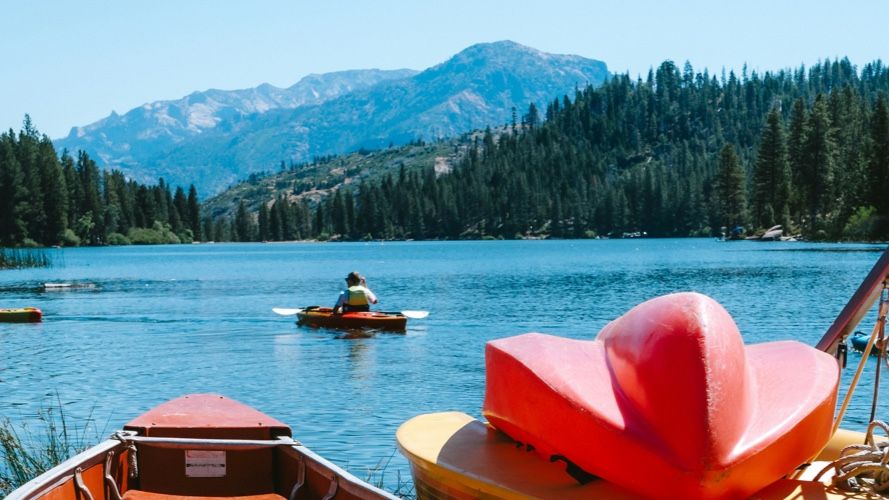Your guide to the different types of summer camps for kids

Introduction
If you're a first-time parent looking into summer camps, we understand this can feel overwhelming. With so many options out there, it's hard to know where to start or what type of camp is right for your child.
The good news? There truly is a camp for every kid. Whether your child is curious about science, bursting with creative energy, loves the outdoors, or needs a little extra support, there’s a camp that’s made just for them.
This guide will walk you through the most popular types of summer camps for kids. You’ll find a quick overview of what each camp type offers, who it’s best suited for, and links to explore more when you’re ready.
Key takeaways:
- There are many types of summer camps, from STEM and arts to sports and travel
- The best camp type depends on your child’s interests, goals, and personality
- Some camps focus on skill-building, others on social growth or exploration
- You can start with a general camp and explore more specific programs over time
- This guide links to detailed articles about each camp type for easy research
Table of Contents
- Introduction
- Key takeaways
- STEM and coding camps
- Sports camps
- Adventure and outdoor camps
- Performing arts camps
- Academic enrichment camps
- Leadership camps
- All-girls and all-boys camps
- Faith-based camps
- Travel and expedition camps
- Special needs camps
- Language immersion camps
- How to choose the right type
- FAQ
- Conclusion
STEM and coding camps
STEM (science, technology, engineering, and math) camps are designed for curious minds who love experimenting, building, or exploring how things work. Many also include coding, robotics, or game design. These camps can be a great fit for kids who enjoy hands-on problem-solving and tech.
They're often offered in both day and overnight formats, with projects that build confidence and collaboration skills. Some focus on one subject, while others rotate through topics.
Learn more about STEM or more sepcific tech and coding camps
Sports camps
Sports camps are a great way for kids to stay active while developing skills and learning teamwork. Options range from general multi-sport camps to specialized programs for soccer, basketball, tennis, swimming, and more.
These camps are ideal for kids who enjoy competition, movement, and physical challenges. Whether your child is trying a sport for the first time or training seriously, there’s a program that matches their level.
Learn more about sports camps or specialized sports camps
Adventure and outdoor camps
Adventure and outdoor camps are all about exploring nature, gaining survival skills, and enjoying physical challenges. Think hiking, kayaking, ropes courses, and campfire nights under the stars.
These camps are perfect for kids who love the outdoors or want to build independence away from screens. Many overnight camps fall into this category, but day options exist too.
Performing arts camps
Performing arts camps give kids the space to express themselves through music, dance, theatre, or a mix of all three. Campers might rehearse for a full production, learn choreography, or work on solo pieces.
These camps are great for creative kids who enjoy the spotlight or want to explore the arts in a supportive setting. Many programs wrap up with a final performance for families.
Learn more about performing arts camps or Music camps
Academic enrichment camps
Academic camps focus on learning and enrichment during the summer, but with a fun, camp-style approach. These may include reading, writing, math, public speaking, debate, or science-based exploration.
They're a good fit for kids who enjoy learning and want to stay engaged academically during the break. Some camps are more structured, while others mix education with play.
Leadership camps
Leadership camps are built around confidence, communication, and teamwork. Campers might lead group activities, plan events, or take on mentor roles with younger campers.
These camps are ideal for older kids or teens looking to grow personally or prepare for future leadership roles. Many overnight camps include built-in leadership components for older age groups.
All-girls and all-boys camps
All-girls and all-boys camps offer single-gender environments focused on community, friendship, and confidence-building. They often promote strong role models and can provide a more relaxed space for kids to grow socially and emotionally.
These camps may appeal to families who value same-gender peer bonding or who want a space that feels less competitive socially. Both day and overnight formats are available.
Faith-based camps
Faith-based camps incorporate spiritual or religious elements alongside traditional camp activities. These programs often include values-based discussions, worship, or reflection.
They can be a good match for families looking to reinforce spiritual growth in a camp setting, with environments built on shared beliefs and community.
Travel and expedition camps
Travel camps involve exploring new places through group trips, often by bus or air. Expedition programs may include hiking trips, wilderness excursions, or cultural experiences.
These are great for older, more independent campers who are ready for new adventures and a break from the traditional camp environment. Many include leadership or service components.
Special needs camps
Special needs camps are designed to support children with physical, developmental, or behavioral needs. These camps have specially trained staff, adaptive activities, and facilities that meet diverse needs.
They provide an inclusive, empowering environment where campers can build friendships, enjoy independence, and safely try new things. Families should always speak directly with the camp to ensure a good fit.
Learn more about special needs camps
Language immersion camps
Language immersion camps help kids learn or strengthen a second language by surrounding them with fluent speakers and cultural activities. Popular languages include Spanish, French, Mandarin, and more.
These camps are ideal for bilingual households or families interested in global learning. They often mix language instruction with cooking, dancing, crafts, and games from other cultures.
How to choose the right type
Choosing the right summer camp starts with understanding your child- their interests, temperament, and readiness. Some kids thrive with structure and targeted skill-building, while others light up when they get to try lots of new things with minimal pressure. It’s not about finding the "perfect" camp, but the one that fits them best right now.
Start by asking yourself:
- What does my child enjoy doing in their free time?
- Do they thrive in large group settings or more personal, small-group dynamics?
- Are they more confident staying close to home or open to being away overnight?
- Is this their first time at camp, or are they ready for something more focused?
If your child is younger or hesitant, a general day camp is often a great introduction. For kids with strong interests- whether it’s science, soccer, or stage performance- a specialty camp can be incredibly rewarding. You can always mix and match over different summers to see what suits them best.
Want help deciding between day and overnight camp? Learn more about the differences here.
Curious how much camps typically cost, and what’s included? Explore our guide to summer camp costs.
Supervision matters. Understand camper-to-staff ratios and how they affect the experience.
And if you’re wondering whether accreditation is something to look for, here’s what parents should know about accreditation.
FAQ
- What’s the most popular type of summer camp?
- It depends on your area, but sports and outdoor camps are often top choices. STEM and arts camps are also growing quickly in popularity.
- Can my child try more than one type of camp?
- Yes. Many families try different camps across summers, or even combine multiple day camp sessions in one season.
- How early should I start looking for a camp?
- Ideally by January or February. Popular programs and weeks fill up fast, especially specialty camps.
- Are specialty camps more expensive?
- They can be, depending on staff, equipment, and resources. But many offer scholarships or sliding scale pricing.
- How do I know if a camp is safe?
- Look for camps that share clear safety policies, hire trained counselors, and communicate well with families. Accreditation, while helpful, isn’t required to ensure safety.
Conclusion
There are so many types of summer camps out there, and each one offers something unique. From building robots to putting on a musical to hiking through the woods, there’s a camp experience for every kind of kid.
Remember, no one camp type is “better” than another. The best choice is the one that fits your child’s interests, personality, and comfort level. Keep exploring, ask questions, and trust that you're heading in the right direction.



